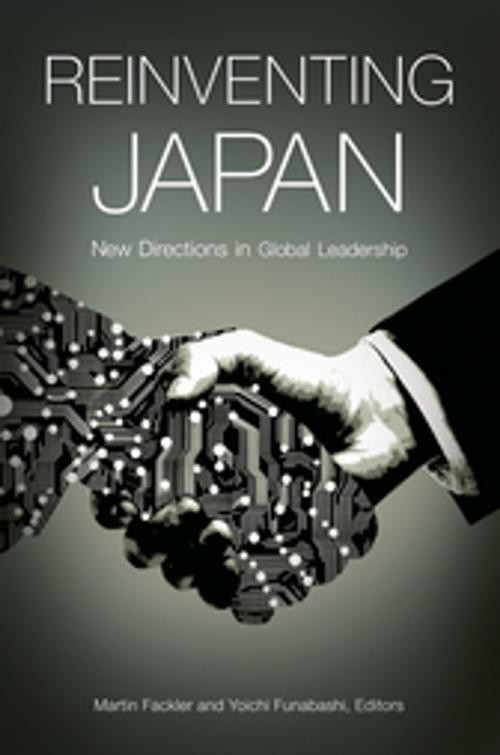Reinventing Japan: New Directions in Global Leadership
Nonfiction, History, Asian, Japan, Social & Cultural Studies, Political Science, International, International Relations| Author: | ISBN: | 9781440862878 | |
| Publisher: | ABC-CLIO | Publication: | March 14, 2018 |
| Imprint: | Praeger | Language: | English |
| Author: | |
| ISBN: | 9781440862878 |
| Publisher: | ABC-CLIO |
| Publication: | March 14, 2018 |
| Imprint: | Praeger |
| Language: | English |
During its so-called Lost Decades, Japan has quietly reinvented itself from a nation with an economy playing catch-up into a global leader in innovation and creativity, one whose "soft power" extends from postmodern architecture to pluripotent stem cells.
Written by a dozen experts in their fields, including architect Kengo Kuma, designer of Tokyo's 2020 Olympic stadium, this book describes Japan's contributions to the world in fields ranging from fashion and pop culture to development aid and historical reconciliation. In addition, it demonstrates how Japan has led efforts to contend with several social and economic challenges facing the entire developed world, including demographic aging, rising healthcare costs, and wasteful consumption. Using these accomplishments as evidence, it argues that, in an era of questions surrounding the capability of American leadership, the time has come for Japan to step into a new role as a purveyor of models and values better suited to today's multipolar and diverse world.
During its so-called Lost Decades, Japan has quietly reinvented itself from a nation with an economy playing catch-up into a global leader in innovation and creativity, one whose "soft power" extends from postmodern architecture to pluripotent stem cells.
Written by a dozen experts in their fields, including architect Kengo Kuma, designer of Tokyo's 2020 Olympic stadium, this book describes Japan's contributions to the world in fields ranging from fashion and pop culture to development aid and historical reconciliation. In addition, it demonstrates how Japan has led efforts to contend with several social and economic challenges facing the entire developed world, including demographic aging, rising healthcare costs, and wasteful consumption. Using these accomplishments as evidence, it argues that, in an era of questions surrounding the capability of American leadership, the time has come for Japan to step into a new role as a purveyor of models and values better suited to today's multipolar and diverse world.



![Cover of the book Imperialism and Expansionism in American History: A Social, Political, and Cultural Encyclopedia and Document Collection [4 volumes] by](https://www.kuoky.com/images/2015/december/300x300/9781610694308-dmAm_300x.jpg)




![Cover of the book Keeping Students Safe and Helping Them Thrive: A Collaborative Handbook on School Safety, Mental Health, and Wellness [2 volumes] by](https://www.kuoky.com/images/2019/may/300x300/9781440854149-rCAj_300x.jpg)






